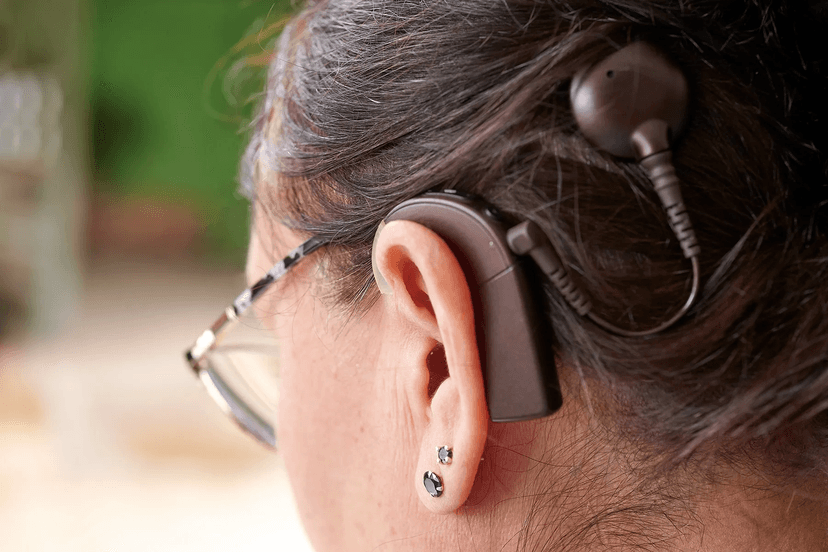Contents
A cochlear implant is a surgical method used to treat patients with hearing loss, whether it's congenital or acquired, and whether it's severe or profound. These surgically implanted devices enable patients to perceive sounds even in cases of complete hearing loss.
Currently, the most effective solution for hearing loss is the cochlear implant. However, due to the high cost of this procedure in the United States, many patients opt to have it done in other countries. In the US, the cost typically ranges from $50,000 to $100,000.
In this guide, we will discuss cochlear implants in Turkey, where the cost is significantly lower compared to other countries. Turkey offers top-quality medical services at a fraction of the cost, making it a preferred destination for cochlear implant treatment, especially for European patients.
In this article, you will find comprehensive information about cochlear implant treatment in Turkey.
What is a cochlear implant?
Cochlear implants are surgically implanted hearing aids designed for individuals with severe hearing loss. These devices enable patients to perceive sound.
Typically, cochlear implants comprise two components, both internal and external: the processor and the microphone. These components are discreetly positioned behind the ear, beneath the scalp. The external microphone, resembling the microphone found in traditional hearing aids, can be detached and reattached as needed. The processor, also referred to as the internal component, is surgically implanted within the inner ear and consists of two distinct parts: the electrode and the stimulator.
How does the cochlear device work?
The cochlear implant passes the damaged parts of the ear to transmit a sound signal to the auditory nerve. Cochlear implants use a sound processor that fits behind the ear. This processor captures sound signals and sends them to a receiver placed under the skin behind the ear. This receiver sends the signals to the inner ear, known as the cochlea, to electrodes placed in the 'cochlea' region of the ear. The signals stimulate the auditory nerve, and these signals are directed to the brain. The brain interprets the signals as sounds, but these sounds are not exactly natural.
Learning to interpret signals from a cochlear implant takes some time and training. Most people with cochlear implants achieve significant gains in speech and hearing after 3-6 months of use.
Who is this procedure for?
Cochlear implant surgery is recommended in the following scenarios:
- Those with severe hearing loss.
- People who have tried other hearing aids but cannot find any solution.
- Those deemed suitable candidates for cochlear implant surgery.
- Children born with profound to profound deafness, provided they are at least 12 months old.
- Older children who have experienced deafness or progressive hearing loss after learning to speak and derive no benefit from traditional hearing aids.
Cochlear implant success rate
Cochlear implant surgery has a 95% success rate in children. 80% of adults say they saw an improvement in their hearing after the procedure.
Post-surgery improvements are typically noticeable during close conversations and when listening to environmental sounds. Consequently, it's important to understand that patients should not anticipate enhanced hearing for distant sounds after surgery, as this is entirely normal.
Potential risks and side effects
Cochlear implant surgery is generally considered a safe and well-tolerated procedure. However, like any surgical procedure, there are rare risks to be aware of, including:
- Bleeding
- Swelling
- Infection at the implant site
- Ringing in the ears (tinnitus)
- Dizziness or lightheadedness
- Numbness around the ear
- Taste changes
- Dry mouth
- Injury to the facial nerve, which can result in facial movement issues
- Spinal fluid leakage
- Infection of the membrane covering the brain (meningitis)
- Risks associated with general anesthesia
Recovery after cochlear implant
After surgery, recovery takes three to five weeks. At the end of this process, you will have a small scar behind your ear. This is normally covered by hair. During this period, you can take part in normal activities, but you will not be able to hear until the external part of the system is connected.
Differences between cochlear implant and hearing aid
Hearing aids serve to enhance the volume of environmental sounds, channeling them to the ears of individuals with hearing impairments. However, when dealing with severe hearing loss, even boosting the sound to high levels may not make it perceptible. Consequently, hearing aids prove less effective in cases of severe or very severe hearing loss.
On the other hand, cochlear implants operate by converting sound waves into electrical signals, which are then relayed to the inner ear nerves. This technology empowers individuals with severe hearing loss to regain their ability to perceive sounds. What sets cochlear implants apart from hearing aids is the fact that they require surgical placement within the ear.
Cochlear implant surgery: In Turkey or at home?
Cochlear implant surgery is a common procedure and costs vary from country to country. The cost of cochlear implant surgery is quite high in many countries.
The cost of cochlear implant surgery in Turkey is $25,000. Turkey is frequently preferred by international patients both for the low prices of cochlear surgery and the high quality of medical services.
Clinics in Turkey offer the highest level of medical service to international patients. The success rate of cochlear implant surgery in Turkey is 95%.
Cochlear implant in Turkey: how does it work?
Finding the right clinic and doctor for cochlear implant surgery in Turkey can be a challenging task. However, our services are designed to streamline the entire process from beginning to end, making it much easier for you.
As a leading health tourism company we ensure that our patients experience a seamless cochlear implant surgery in Turkey. We offer discounted prices and a comfortable experience. With our comprehensive services, you can undergo cochlear implant surgery in Turkey with ease and success, all at significantly lower prices compared to other countries.
Step 1: Initial consultation
If you're considering cochlear implant surgery in Turkey, we'll start with a brief consultation. During this phase, we'll gather information about your medical condition and review any relevant test results.
Step 2: Clinic selection
We will present you with a list of top clinics in Turkey that offer cochlear implant surgery. Once you've made your choice, we will handle all communication with the chosen clinic and transfer your medical records.
Step 3: Travel arrangements
We will meticulously plan your trip for the cochlear implant surgery. Every aspect of your journey will be carefully arranged to ensure a hassle-free experience. You'll receive comprehensive support for transportation, logistics, hospital transfers, and more. Additionally, A-Medical will provide you with a personal assistant and a translator.
Step 4: Treatment process
Upon your arrival at the chosen clinic, your treatment process will begin as per the pre-established program. Every aspect of your treatment will proceed according to plan. Payment will be directly made to the clinic.
The cochlear implant surgery program in Turkey typically follows these steps (though it may vary for individuals):
- A thorough examination by Ear, Nose, and Throat (ENT) specialists before surgery.
- Request for magnetic resonance (MRI) and ear tomography to identify inner ear issues.
- Evaluation of the patient's overall health and determination of surgery eligibility.
- Depending on the cause of hearing loss, different procedures may be considered.
- Genetic assessment for congenital hearing loss cases.
- Cochlear implant surgery involves a small incision behind the ear to create space for the implant.
- Electrodes are carefully inserted into the cochlea.
- The functionality of electrodes and the implant is verified before closing the incision.
- The surgery, performed under general anesthesia, typically takes 2-4 hours.
- Radiological imaging confirms the implant's position after the patient awakens from anesthesia.
- Approximately 4 weeks later, the external microphone is installed to activate the implant.
Step 5: Returning Home
After completing your treatment according to the prescribed program, we'll arrange for your transfer to the airport, facilitating your return to your home country. Post-treatment, you'll continue to have routine doctor consultations, which can be conducted online if necessary.
Cochlear implant cost in Turkey
The average cost of cochlear implant surgery in Turkey is 25,000 USD. You can expect to pay costs between $50,000 and $100,000 for the same procedure in developed countries such as the United States and Europe.
Why choose A-Medical?
At A-Medical, we help international patients to get cochlear implant in Turkey in an affordable, high-quality, and easy way. We help you with everything from informing you about cochlear implant in Turkey to managing your treatment process from scratch.
As A-Medical medical tourism company, we offer you the following advantages during your treatment abroad:
- Choosing the most suitable clinic for you
- Making your travel plan
- Obtaining the procedure at discounted prices
- Sending your medical documents to the clinic abroad with their translation
- Arranging a doctor's appointment (video conferencing if necessary)
- Support regarding tickets and visas
- Translator support
- Transfer support
- Establishing communication
- Service to benefit from campaigns and discounts
You can check out our page to learn about all our other services that we have not added yet. If you want to receive cochlear implant surgery in Turkey but do not know where to start, you can contact us for a consultation.




